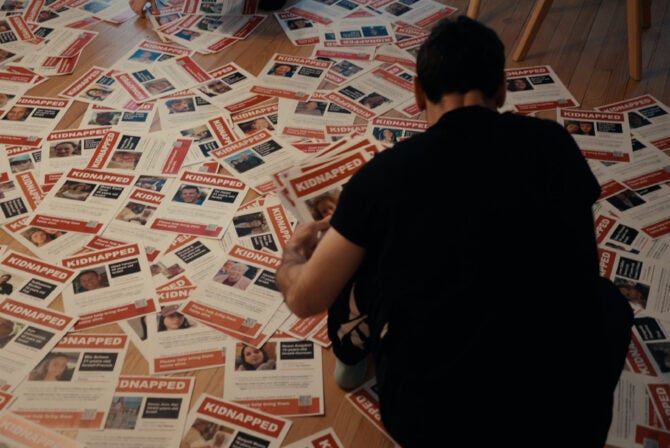One of the things I miss about living in the U.S. is that people there have actually heard of Jews. Here in the U.K., I’m often met with a blank look if I mention that I’m Jewish. Usually, this doesn’t make a difference–for example, if someone has asked me about my last name, or has commented on how I don’t “look English,” I say I’m Jewish, and if they don’t get it, I don’t really care. But when it comes to matters of health, it can get frustrating. And when you add a child to the situation, it is more than frustrating–it becomes critical.
Typically, British forms that ask about ethnicity only give the following options: White British, White Irish, Black, or Asian. Clearly, as someone who grew up in Chicago with Ashkenazi heritage, I don’t fit into any of those categories. This seems to disturb people, because if you can’t easily be categorized, then they feel they don’t understand you.
But then Judaism itself isn’t easily categorized, and this is an old discussion point–is “Jewish” a race? A religion? A culture? An ethnicity? Some combination thereof? Or something else altogether? Are Jews white? Some people think so, but then Middle Eastern folks aren’t usually considered white, so what then? Are Ashkenazi Jews European or Middle Eastern?
When I was pregnant and went for my first appointment with the midwife, she asked about my ethnic background. She needed to know in order to ensure that I got the appropriate prenatal checks. I told her that I was Ashkenazi.
“Ashke-what?” was her response.
“Ashkenazi is a Jewish ethnic division,” I told her, trying to explain in simple terms. “Ashkenazi people are Eastern European Jews.”
She told me she had never heard of this and in fact didn’t think there were any such people here in Norwich. The obvious rejoinder would have been to point out that a) I was sitting right there in front of her, living proof that such people exist in Norwich, and b) there is a synagogue in the city filled with others like me–but I politely restrained myself. Instead, I offered her some more information about what Ashkenazi is. I also pointed out that she needed to know because of the possibility of Tay-Sachs disease. Her eyes appeared to glaze over. She hadn’t heard of this genetic illness before.
“So you’re Eastern European then?” the midwife finally said, her pen poised over the form, anxious to just tick a box and move on.
Not exactly, I told her.
“Middle Eastern?” she tried next, squinting to find the right square.
Still not quite correct.
Her last suggestion was, “African?”
I said, “Originally, we’re all African.” This was a dumb thing to say, because it just bewildered the health professional even more. She studied me, as if wondering whether I was in fact African.
Finally the midwife ticked “other” and moved the conversation on.
At a later appointment with a different midwife, I brought up the issue of ethnicity and asked if I (and potentially the fetus) would be tested for any genetic illnesses related to being Ashkenazi. I was told to “ask the sonographer” to look at the ultrasound. I’m not a medical doctor, but I was pretty sure that an ultrasound wouldn’t reveal Tay-Sachs. When I tentatively suggested that, the midwife shrugged and repeated the advice about talking to the sonographer.
I never did get any Ashkenazi-relevant testing. Luckily, the baby is perfectly healthy. But I’m left wondering about other expectant parents who might find themselves in my situation. If trained midwives, doctors, and others in the medical profession aren’t familiar with different ethnicities/races/cultures, how can they ensure that people get the healthcare they need?
This is one reason why now, I always write “Ashkenazi” on forms in the U.K. or tell people who ask for medical or professional reasons that I am Ashkenazi. Since they don’t understand the word, they ask me what I mean, and then I have an opportunity to educate them about it.
Frankly, though, I still don’t really know if I’m African or Middle Eastern or Eastern European. I hope that one day, we won’t be as concerned about these things from a social perspective, but we still need to be from a medical one. “Other” just isn’t good enough.
Like this post? Get the best of Kveller delivered straight to your inbox.







